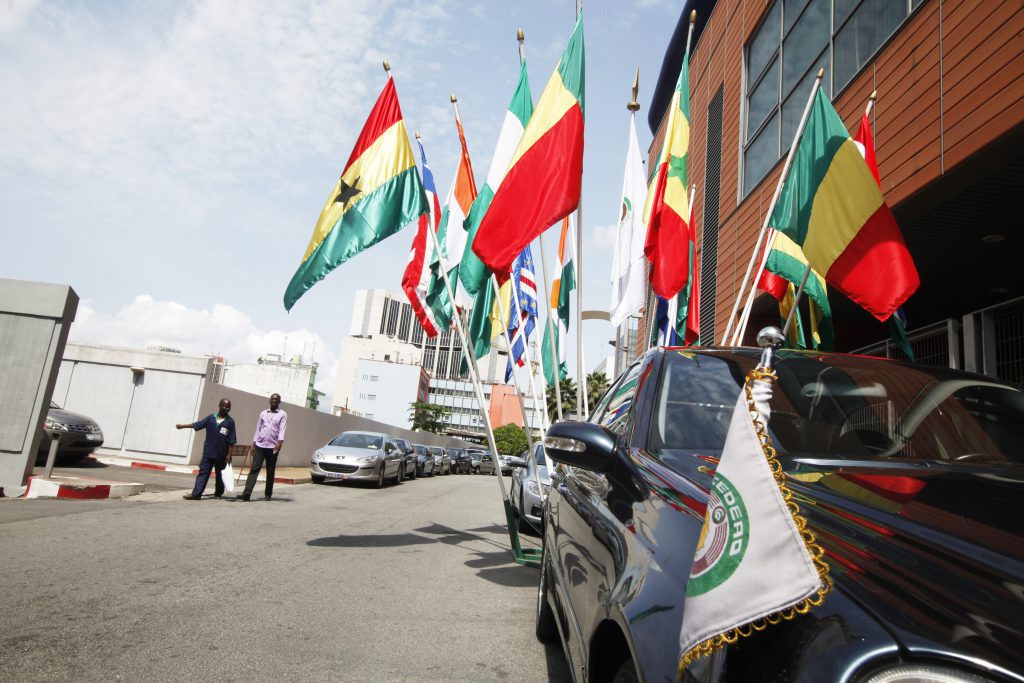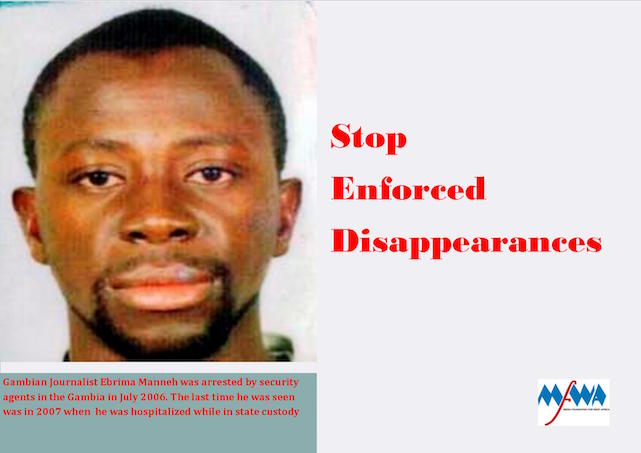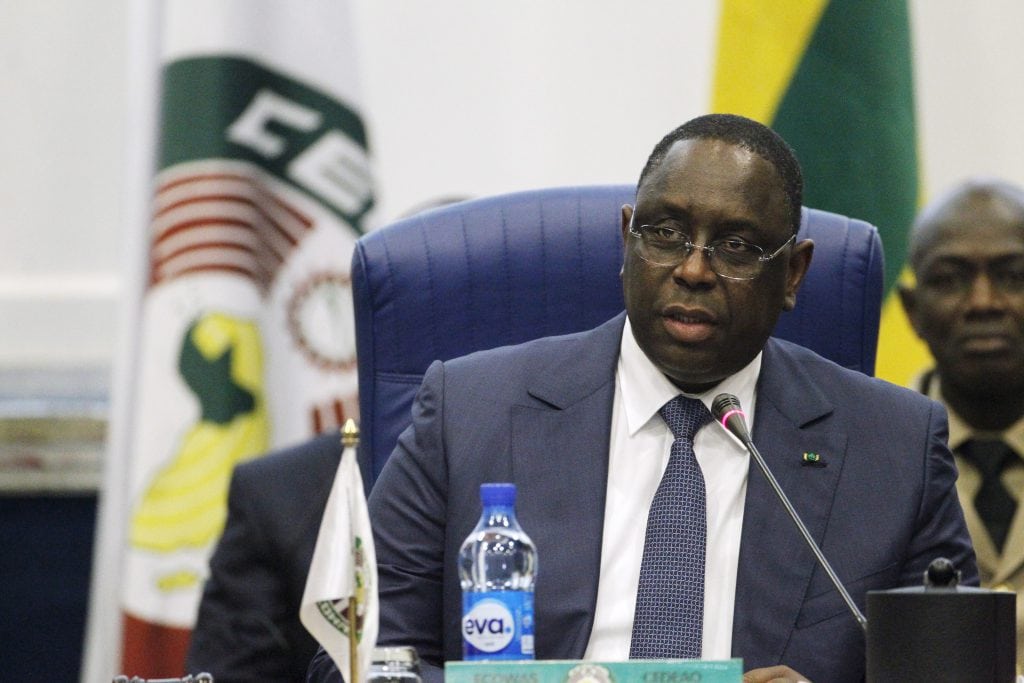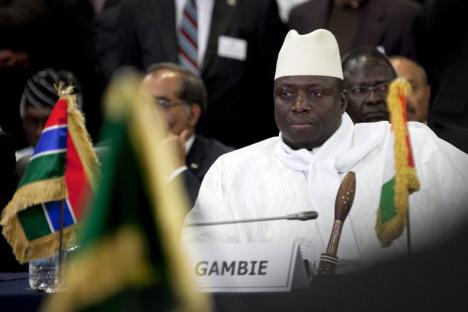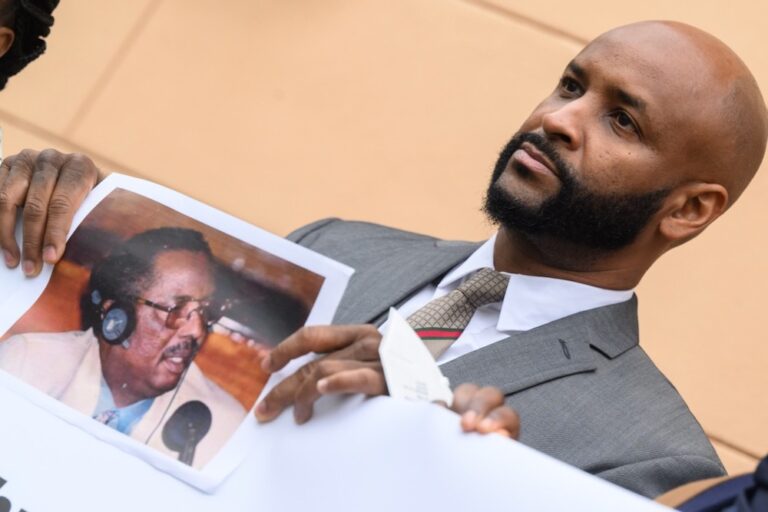Gambian journalists Musa Saidykhan and Ebrima Manneh were separately arrested and detained by state agents in Gambia. Saidykhan was subjected to brutal torture, while Manneh disappeared with little trace.
In 2006, Gambian journalists Musa Saidykhan and Ebrima Manneh were separately arrested and detained by state agents in Banjul, Gambia. Saidykhan was subjected to brutal torture, while Manneh disappeared with little trace. The ECOWAS Community Court of Justice has issued judgements against The Gambia in both cases, finding the state guilty of criminally violating their rights and owing them recompense. While under former President Yaya Jammeh, the government ignored the ruling and refused payment, under the new government of President Adama Barrow, compensation has started to flow to the family of Ebrima Manneh while negotiations over settlement are underway with Musa Saidykhan.
On 28 March 2006, Musa Saidykhan, Editor-In Chief of The Independent newspaper, was arrested and detained by Gambian police. Saidykhan was taken to the State Intelligence Services (formerly known as the National Intelligence Agency (NIA), along with the newspaper’s managing director Madi Ceesay and other staff members simultaneously arrested.
During his detention, Musa was subjected to cruel, inhumane and degrading treatment, including the use of torture to the point of unconsciousness, which left him severely scarred on his back, legs and arms, and his right hand broken in three places. Musa was held incommunicado – his family and friends all denied access – with no formal charges ever being laid.
On 7 July 2006, plainclothes officers from the NIA arrested another journalist, Chief Ebrima Manneh, with the pro-government Daily Observer newspaper, at his office in Banjul. It is believed that Manneh was arrested for passing “damaging” information to a BBC journalist during an African Union meeting, along with trying to republish a BBC story criticising former President Yahya Jammeh’s coup to power as undemocratic.
During the year following his arrest, Manneh was spotted multiple times with prison police and NIA officials as he was transferred between various police stations and detention centres. Despite these reports and overwhelming eyewitness testimony and other evidence collected by his colleagues and civil society, the government has repeatedly denied ever taking him into custody.
Both incidents occurred during a crackdown on the media following the government’s announcement of a foiled coup in March 2006. The coup was used as an excuse to arrest, intimidate and harass scores of journalists and media workers in the lead-up to national elections.
In the years that followed, the Media Foundation for West Africa (MFWA) brought lawsuits against The Gambia at the ECOWAS Community Court of Justice on behalf of both Saidykhan and Manneh. The Court found that The Gambia had violated Musa Saidykhan’s human rights and ordered the government to pay US$200,000 in compensatory damages. In the case of Ebrima Manneh, The Gambia was ordered to release Manneh and pay his family damages of US$100,000. To date, Manneh’s fate is still unknown.
Key Actors
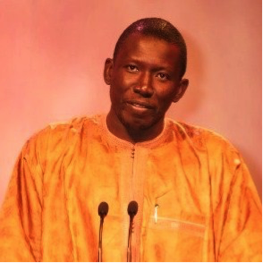
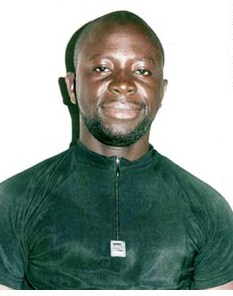
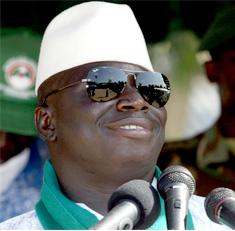






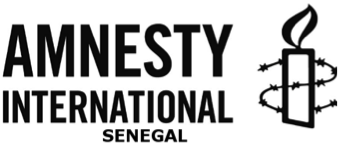
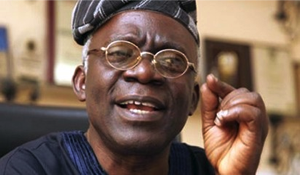
What IFEX Members Are Doing
The Media Foundation for West Africa has consistently called on the Gambian government to comply with the ruling of the ECOWAS Community Court of Justice through appeals and campaigns organised by MFWA with other civil society and free expression groups in West Africa. Currently, MFWA is working with relevant stakeholders to reform media laws in the Gambia and to develop strategies to address the issue of impunity in the region more broadly.
ARTICLE 19 has been active in demanding justice for Musa Saidykhan and Ebrima Manneh and conducted advocacy at the United Nations Human Rights Council, urging the government to honour the ECOWAS judgments and calling for the creation of a UN Special Rapporteur on the Human Rights Situation in the Gambia, among other measures to improve freedom of expression in the country.
Reporters Without Borders routinely highlights Manneh’s case, and in 2015, submitted an application to the UN Working Group on Enforced or Involuntary Disappearances and to the UN Working Group on Arbitrary Detention, urging them to open investigations into Ebrima Manneh’s case. The UN Special Procedures have previously been denied access to detention facilities during their visit.
MORE RESOURCES & INFORMATION
AFRICA Media Foundation for West Africa (MFWA) 13 November 2014
This is a compilation of human rights violations recorded in The Gambia between 2010-2013 The report lists incidents of human rights violations such as extra judicial killing, torture or cruel, inhuman, or degrading treatment or punishment, and arbitrary arrests and detentions. The reports give a brief narration of each incident and identify victims of the violations.
A new dawn for free expression: country profile of the Gambia
AFRICA 28 August 2017
After years of despotic rule, former president of the Gambia, Yahya Jammeh, was ousted from power following a general election in December 2016. Our No Impunity profile examines the new environment for media and civil society and hopes for an end to impunity for past abuses.
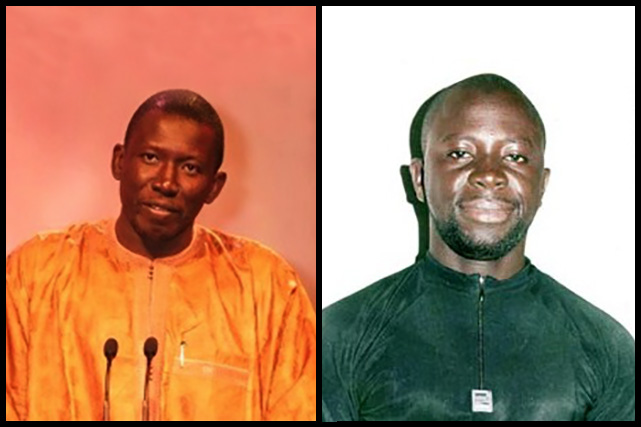
 “I was stripped naked while live-electric shocks were administered all over my body including my genitals. I was told by my torturers that electric shocks on my genitals were meant to make me impotent.”
“I was stripped naked while live-electric shocks were administered all over my body including my genitals. I was told by my torturers that electric shocks on my genitals were meant to make me impotent.”  On 20 April, the Gambian Police release Musa Saidykhan and Madi Ceesay after 3 weeks in detention at Gambia’s NIA headquarters in Banjul. They were not charged with any crime and were granted bail to the sum of 200,000 Gambian dalasis (then equivalent of US$ 7,400).
On 20 April, the Gambian Police release Musa Saidykhan and Madi Ceesay after 3 weeks in detention at Gambia’s NIA headquarters in Banjul. They were not charged with any crime and were granted bail to the sum of 200,000 Gambian dalasis (then equivalent of US$ 7,400).